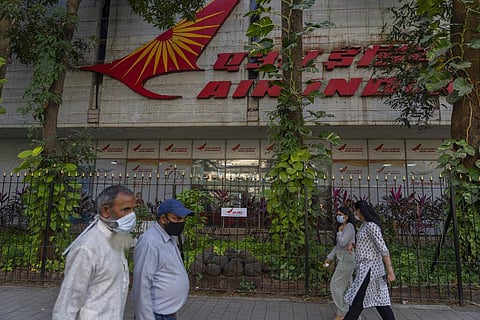Mega Air India deal shows it’s ready to take on global rivals
The erstwhile national carrier Air India signed a historic pact to buy 540 aircraft, including 290 planes from the US-based Boeing and 250 more from France’s Airbus. But unlike regular corporate deals, this one packs a punch, including a diplomatic strong point strengthening economic partnership with leading G20 nations. Until now, we’ve seen our software stalwarts creating employment overseas, but not in manufacturing. Rather, we have been chasing those sacred billions ourselves seeking jobs for boys. The Air India deal stands out for creating the coveted manufacturing jobs, overseas. And in truckloads, as acknowledged by none other than the US President Joe Biden. The deal will also lift the sagging fortunes of aircraft makers hit by the pandemic. Lastly, the plane shopping spree emphatically announces Air India’s bid to take on not just domestic carriers but also international rivals.
Following its acquisition in January 2022, the Tata group began merging Air India with its full-service airline Vistara, and combining low-cost carriers AirAsia India and Air India Express. Together, they fly 230 aircraft, but none is profitable. Yet, the Tata plan is to capture 30% of the domestic market share in five years. If achieved, it’ll be a befitting present commemorating Air India’s 75th birthday and the jumbo aircraft deal is a crucial step for its turnaround. Throughout 2022, trouble came in threes. Air India’s market share sunk to the ground at 8.7%. It courted controversies ranging from pilots’ discontent to credibility crisis owing to service quality and poor on-time performance. Topping them all was the embarrassing urination incident that exposed Tata’s inexperience. Aviation regulator DGCA slapped monetary penalties, besides suspending the pilot’s license for three months.
None of this was expected from the Tata’s most-expensive bet. Last year, they spent $2.4 billion to buy back the carrier that was losing $2.6 million a day. This year, they are pledging $100–150 billion to buy brand new planes, hoping that extravagance will yield profits. But all airlines need is infrastructure. For long, India has been an underserved market with domestic carriers flying just 646 planes as against China’s 3,922. Ironically, there aren’t even enough airports to land our planes. The government did announce 50 new airports, but we must first expand existing capacities at all major hubs, where air traffic is exploding.

